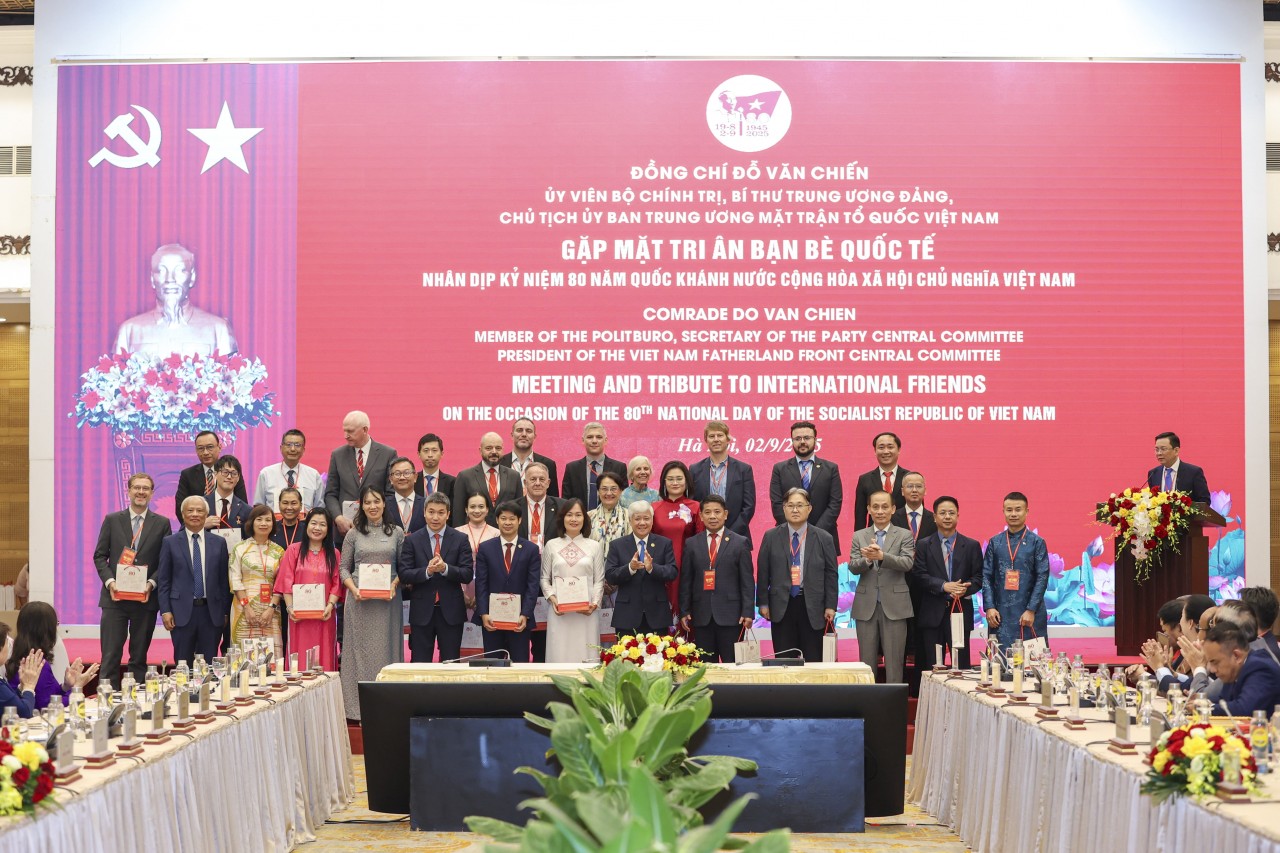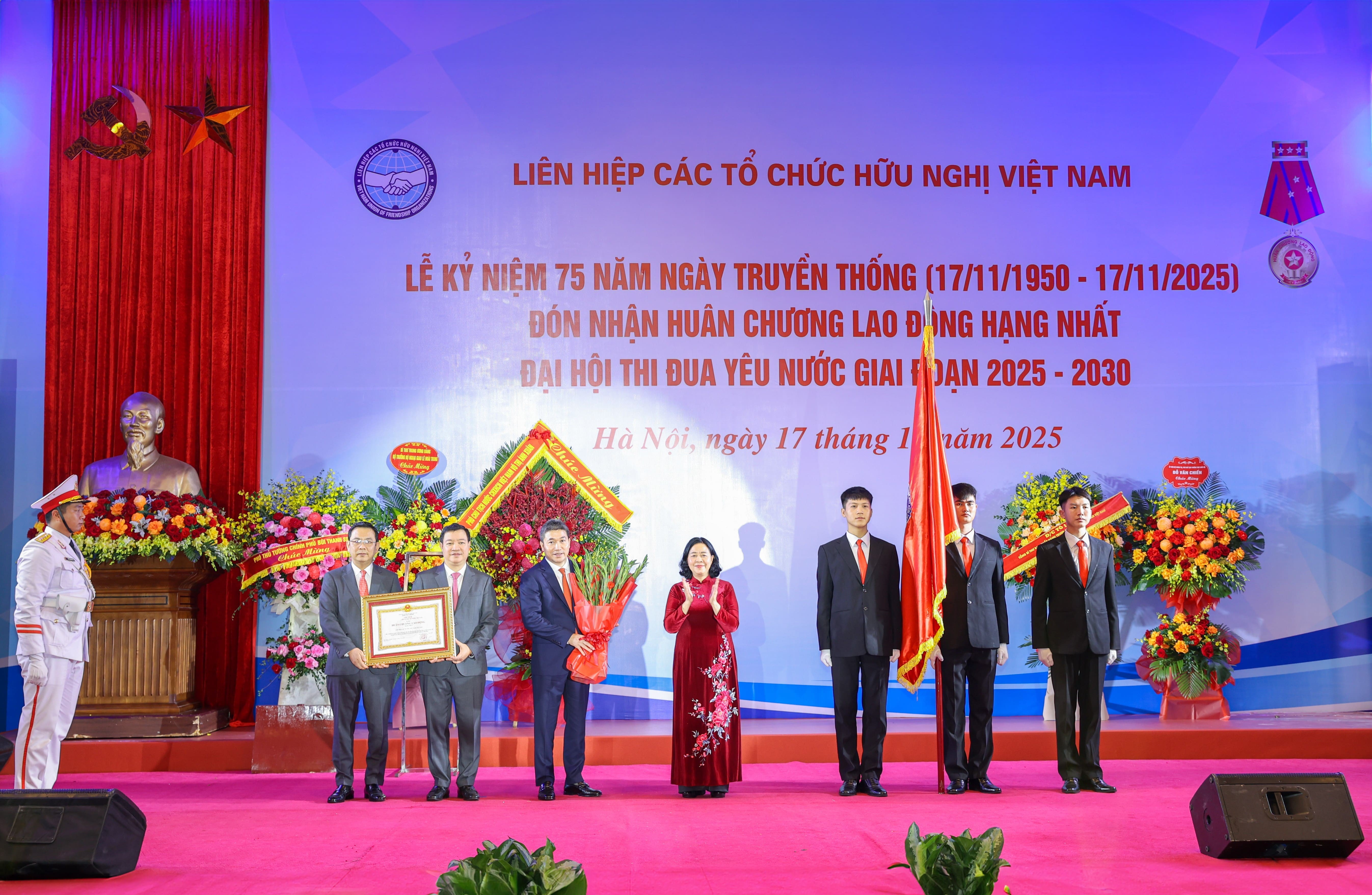Solutions to Promote and Deepen Vietnam-Latin America Relations
| Latin Americans Fondly Remember General Secretary Nguyen Phu Trong | |
| Vietnam, Latin America: Solidarity Rooted in Similarities in National Liberation Struggles |
The seminar was co-chaired by Dr. Dao Ngoc Bau, Director of the Institute of Politics and International Relations; Assoc. Prof. Dr. Le Van Dinh, Deputy Director of Regional Academy III; and Dr. Bui Viet Huong, Deputy Director of the Institute of Politics and International Relations.
According to the official portal of the Ho Chi Minh National Academy of Politics, in his opening remarks, Assoc. Prof. Dr. Le Van Dinh emphasized that the seminar was one of the Academy’s practical activities to implement the Politburo’s Resolution No. 59-NQ/TW on international integration in the new situation. It aimed to further enhance understanding of the opportunities for cooperation between Vietnam and Latin American countries in the fields of culture, education, and people-to-people diplomacy.
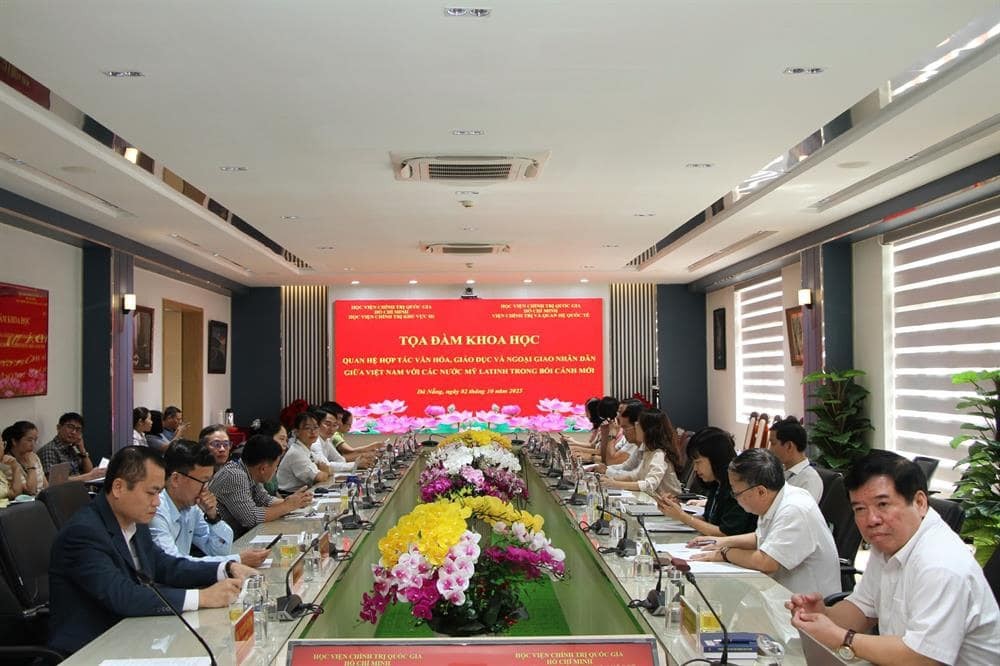 |
| Seminar on cultural, educational, and people-to-people cooperation between Vietnam and Latin America in the new context. (Photo: hcma.vn) |
In her keynote report, Dr. Bui Viet Huong analyzed the Vietnam-Latin America relationship based on its historical foundations and recent developments. She noted that many Vietnamese educational institutions have introduced programs in Spanish and Portuguese languages, as well as Latin American culture, thereby strengthening connections between Vietnam and the region. However, she also pointed out challenges to people-to-people diplomacy, including the small size of the Vietnamese community in Latin America, geographical distance, cultural differences, and limited financial resources. To enhance connectivity, she proposed the establishment of more cultural and research centers, the promotion of academic exchanges, and the development of transportation links to reduce travel costs and time between Vietnam and Latin America.
Speaking at the seminar, Assoc. Prof. Dr. Nguyen Viet Thao emphasized that Latin America has been an active revolutionary region for socialism in the 21st century. The region boasts a vibrant culture and rich spiritual life and is home to nearly half of the world’s Nobel laureates in literature. Latin American people have always expressed their wholehearted support for Vietnam’s just struggle for national independence and freedom, thereby contributing to the formation of a global front of solidarity with Vietnam. Since Vietnam’s initiation of the Doi Moi (Renewal) process in 1986, relations between Vietnam and Latin American countries have entered a new stage of more dynamic and comprehensive development.
![![Assoc. Prof. Dr. Nguyen Viet Thao, former Deputy Director of the Ho Chi Minh National Academy of Politics and Permanent Vice President of the Vietnam–Cuba Friendship Association, speaking at the seminar. (Photo: hcma.vn)] ![Assoc. Prof. Dr. Nguyen Viet Thao, former Deputy Director of the Ho Chi Minh National Academy of Politics and Permanent Vice President of the Vietnam–Cuba Friendship Association, speaking at the seminar. (Photo: hcma.vn)]](https://vietnamtimes.thoidai.com.vn/stores/news_dataimages/2025/102025/09/10/5c0f1dcd882ddca6ab7fb8ca9506b477.png?rt=20251009100934) |
| Assoc. Prof. Dr. Nguyen Viet Thao, former Deputy Director of the Ho Chi Minh National Academy of Politics and Permanent Vice President of the Vietnam-Cuba Friendship Association, speaking at the seminar. (Photo: hcma.vn) |
However, according to Assoc. Prof. Dr. Nguyen Viet Thao, bilateral relations between Vietnam and Latin American countries have yet to fully realize their potential. He proposed several recommendations: clearly defining the key priorities in Vietnam-Latin America relations to create strategic breakthroughs; encouraging the participation of small and medium-sized private enterprises in developing these relations; establishing a specialized agency to serve as the core mechanism for promoting cooperation; and setting up a Latin American Cultural Center in Vietnam as well as a Vietnamese Cultural Center in the region.
Vietnamese ambassadors to Latin American countries presented their papers, providing a comprehensive and objective overview of the region. They affirmed that Latin America is a peaceful, stable, and prosperous region with a rich cultural identity, rejecting the negative stereotypes of instability and poverty sometimes portrayed in certain media outlets.
According to the ambassadors, Latin America now regards Vietnam as a provider of sustainable development solutions and models in Asia, as well as a strategic bridge between Latin America and the ASEAN Community. To enhance the effectiveness of external relations, they proposed implementing a project to honor and promote the image and ideology of President Ho Chi Minh abroad, taking advantage of the deep affection that Latin American people hold for him and for Vietnam’s heroic history. The participants agreed on the need to establish new cultural exchange mechanisms, such as inviting artists, dance and music troupes, and public figures from Latin America to Vietnam to promote cultural understanding, tourism, and trade cooperation.
Affirming that cultural diplomacy is an effective means of exercising soft power, the ambassadors highlighted the importance of sharing experiences in the development of cultural and creative industries between the two sides. This would serve as a solid foundation for economic development and elevate Vietnam-Latin America relations to a new height.
Representatives from the Vietnam Chamber of Commerce and Industry (VCCI) – Central and Central Highlands region and the Da Nang Union of Friendship Organizations emphasized that Da Nang, known as Vietnam’s most livable coastal city, is always ready to serve as an ideal destination for international cooperation activities. Should Da Nang host Vietnam-Latin America people-to-people exchange and diplomatic events, these organizations pledged to provide full support, viewing this as an opportunity for Da Nang to showcase its cultural and tourism potential and contribute to fostering closer ties and mutual understanding between the peoples of Vietnam and Latin America.
In his closing remarks, Dr. Dao Ngoc Bau affirmed that the papers and discussions presented at the seminar had provided a solid scientific and practical foundation, enriching the understanding of the potential for Vietnam-Latin America cooperation. The seminar, he stressed, holds significant importance in shaping Vietnam’s foreign policy, serving as a basis for formulating comprehensive and effective strategies for partnership with countries committed to peace and development in the region and the world.
 | Vietnam Reunification Through the Lenses of Latin American Friends In the early morning of April 30, 1975, Latin American time, 11-year-old Jesús Germán Faría Tortosa woke up to the sound of "Vietnam ganó, Vietnam ... |
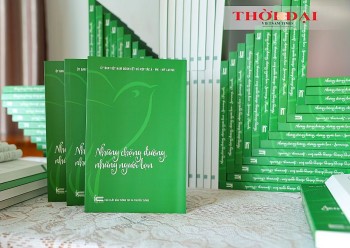 | New Book Highlights Vietnam's Work With Asian-African-Latin American Communities The book has nearly 300 pages and is written in both Vietnamese and English. It highlights the journey and contributions of the Viet Nam Committee ... |
Recommended
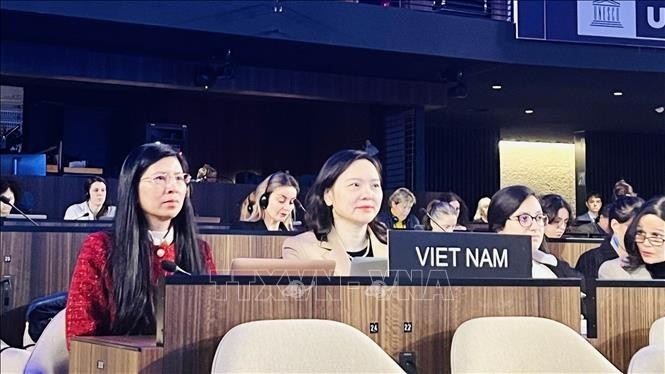 Viet's Home
Viet's Home
Vietnam Continues to Work with UNESCO to Safeguard Cultural Diversity in the Digital Era
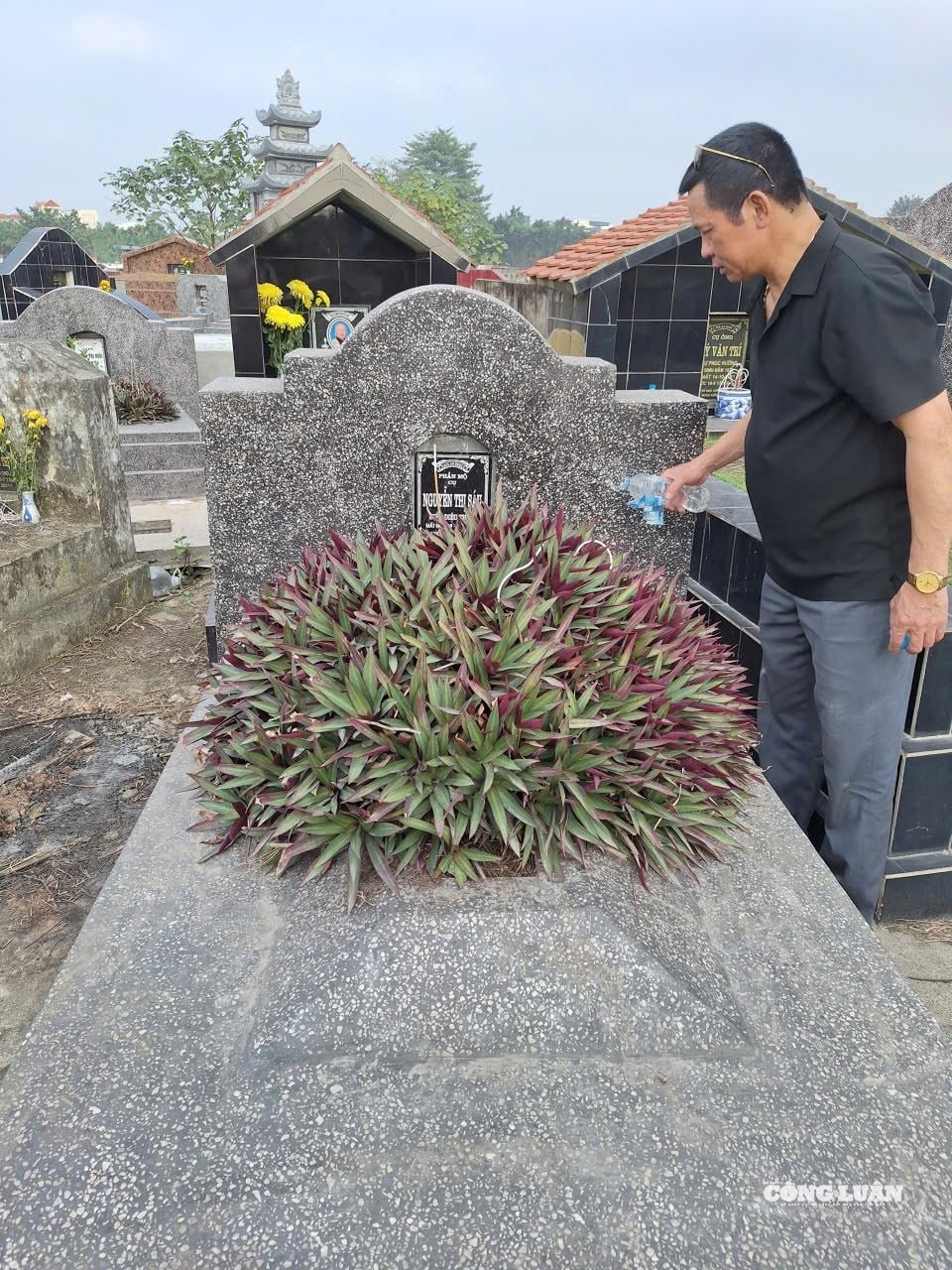 Viet's Home
Viet's Home
Inviting Ancestors Home for Tet
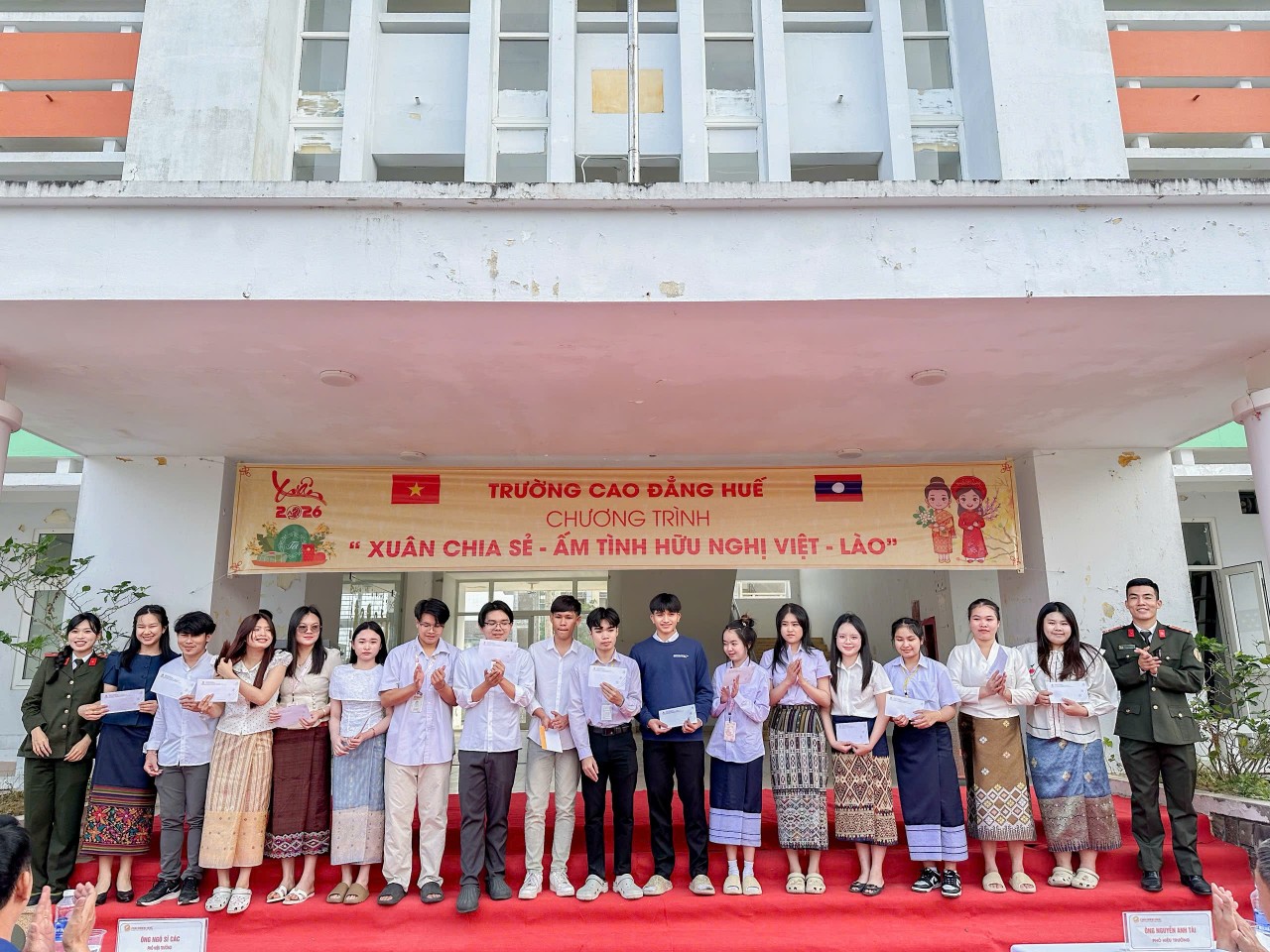 Viet's Home
Viet's Home
Universities In Vietnam Organize Tet Activities For International Students
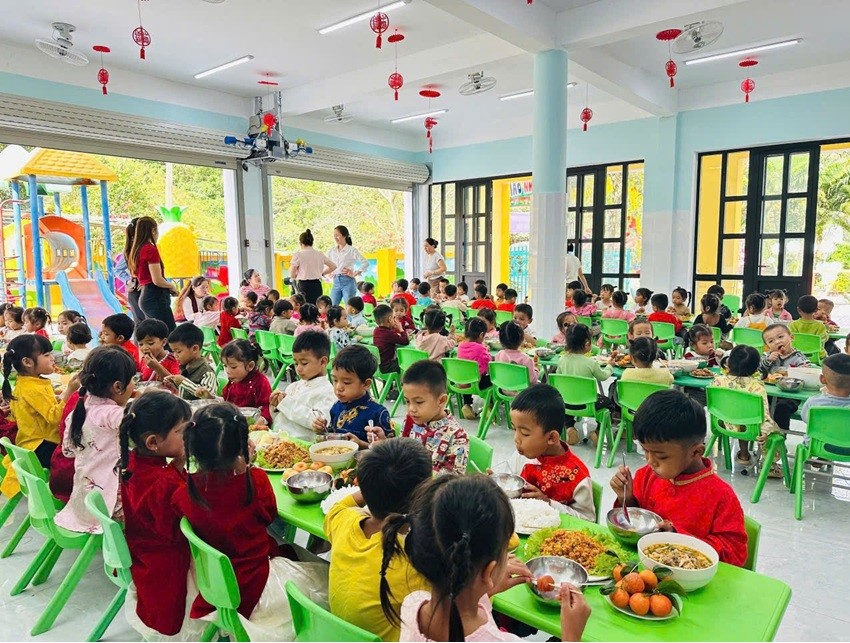 Viet's Home
Viet's Home
Zhi Shan Foundation Sent Tet gifts to Over 3,000 Children in Mountainous Region of Quang Tri
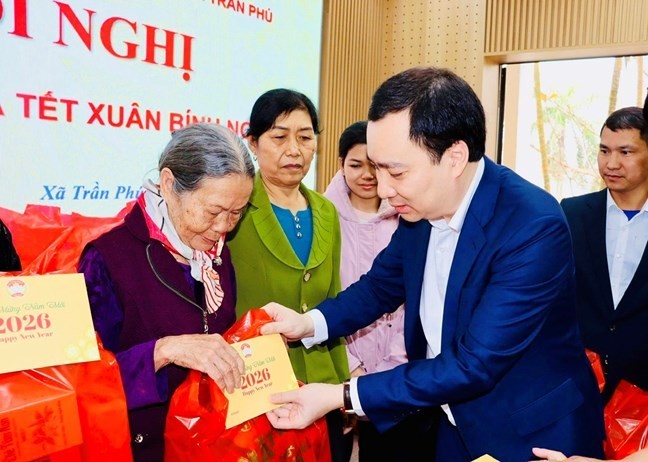 Viet's Home
Viet's Home
Hai Phong Brings Lunar New Year Gifts to Disadvantaged Families in Tran Phu Commune
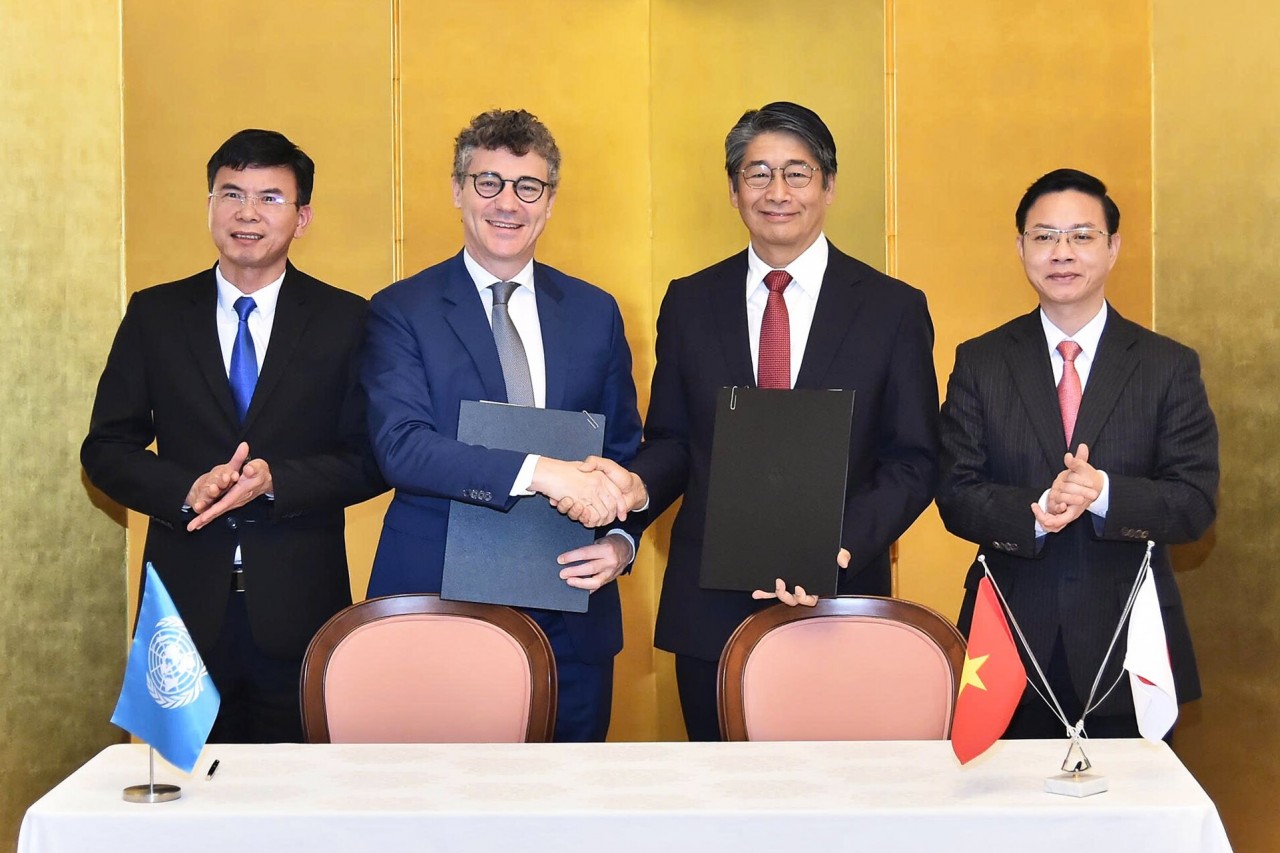 Viet's Home
Viet's Home
UNESCO and the Government of Japan Strengthen Disaster Prevention Capacity and School Safety in Vietnam
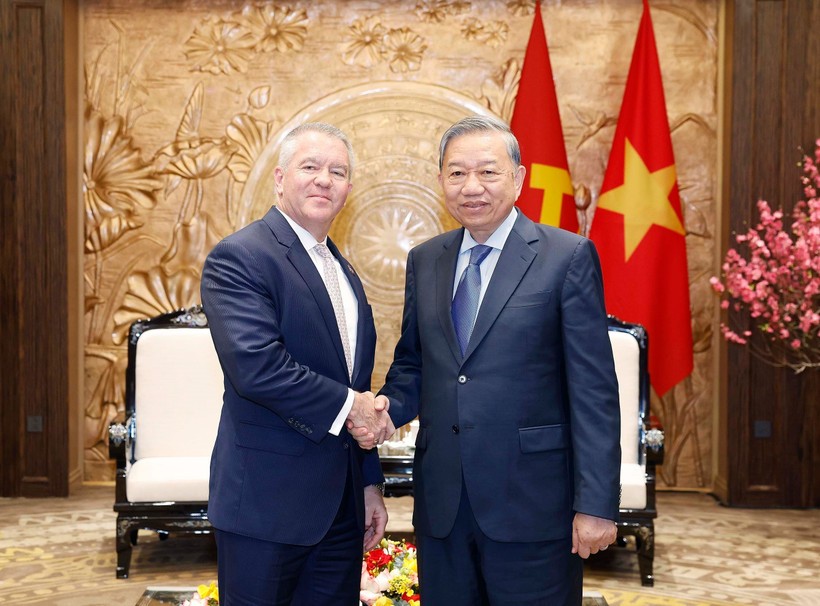 Viet's Home
Viet's Home
Vietnam News Today (Feb. 14): Party chief receives US Assistant Secretary of State
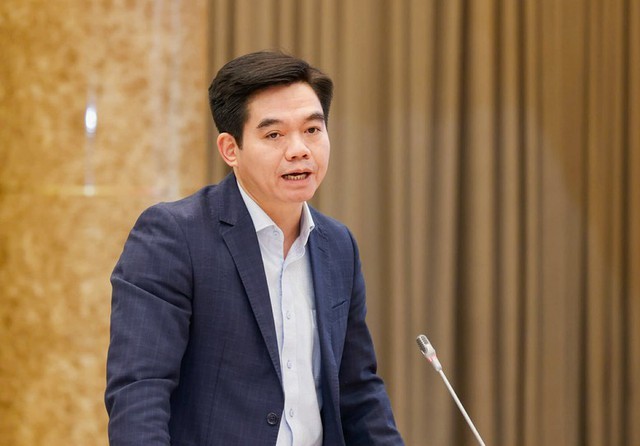 Viet's Home
Viet's Home

